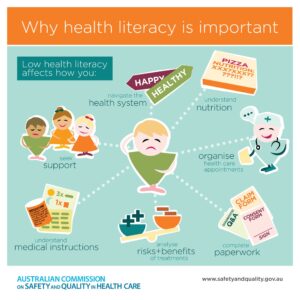Latest News
Personality disorder patients ‘let down’ by system
But most of us know next to nothing about it. Some question whether the illness even exists.
Campaigners say Personality Disorder (PD) is the Cinderella diagnosis of the NHS’s Cinderella mental health services. There is certainly no fairytale ending for those unable to access treatment and support. Health professionals who are demanding better access to treatment for those affected say one in 10 people diagnosed with it ends up taking their own life.
A consensus statement signed by the RCP, the Royal College of Nursing, mental health charities, professionals and those with experience of PD has been launched in Parliament demanding improvement to the “appalling treatment” sufferers receive.
While there has been focus recently on improving NHS treatment for psychosis, anxiety and depression, leading voices in mental health say far too little evidence-based treatment is available for the more than 3 million people, according to the RCP, whose lives are being ripped apart by PD.
In addition, the RCP estimates at least one person in 20 is living with a personality disorder right now.
Often triggered by some emotional trauma in childhood, among the more common features of PD are self-harm, substance misuse, abrupt mood swings and suicidal thoughts.
A number of different types have been identified but all involve persistent emotional instability and behaviour that has a profoundly negative impact on people’s lives. In Sheffield, I met PD sufferer Catherine Carlick.
“Imagine you are on a rollercoaster that’s going up and down, up and down. It is like that for me. My mood is up and down, the voices in my head, the impulsivity, the anxiety, the intrusive thoughts that you have. Every day can be a case of getting through that day.”
Walking with her two beloved dogs near her Sheffield home, Catherine comes across as bubbly and confident.
But beneath the cheerful surface is a woman tortured since childhood by what she has now been told is Borderline Personality Disorder – so-called because its symptoms are on the borderline between psychosis (an impaired relationship with reality) and neurosis (anxiety, depression and obsessive behaviour).
Whatever the label, the disorder’s impact can be devastating.
“I saw bar codes at the back of my victim’s neck that were sending messages to me telling me to poison her.”
Catherine’s PD involved hearing voices which convinced her to try to poison a work colleague.
“I put diazepam in her drinks thinking she would go off work poorly and get the sack,” Catherine tells me. “She had to be removed from the situation.”
She was sent to prison before being moved to a secure psychiatric unit where she was eventually diagnosed with PD.
“It’s one of the darkest places in my head I have ever been, I would prefer death to that. Anytime I would prefer death to the way I felt.”
- Living with borderline personality disorder
- Personality disorder ‘widespread’
- Struggling with personality disorder
- Mental health: 10 charts on the scale of the problem
Most PD sufferers are not offenders, but in the last decade it is the criminal justice system that has given impetus to the diagnosis and treatment of PD. It is estimated that 70% of prisoners have the disorder.
Today there are a number of psychological therapies approved by the National Institute for Health and Care Excellence (NICE) that help some sufferers manage their condition.
Sarah Rose is among a group of people with PD who attend a therapy session in a GP surgery in Swindon.
The treatment helps them manage their thinking more effectively, providing mental escape routes when emotions threaten to become damaging or potentially catastrophic.
“The stress I experience triggers emotions and automatically I just want to kill myself. Now I know that there is something I can do before that,” she explains.
“It’s been a lifetime of trauma, sexual abuse, rape, that brought me to literally caving in and thinking what the hell is going on,” reveals one woman. “Coming here – it’s saved my life”, says another. “Coming to a (PD) group like this, you are not alone,” another woman explains. “The label isn’t helpful but there are commonalities.”
The Personality Disorder label divides campaigners. For some, it is useful as a rallying point for services, support and campaigning. For others, it serves to deepen the stigma.
There are numerous stories of people with a PD diagnosis being excluded from services, seen as a difficult person rather than someone in desperate need of help. The phrase is often wrongly aligned with violence and criminal behaviour.
Brain scans of people diagnosed with PD suggest differences from those in the wider population.
“My name is Sue Sibbald and my personality is not disordered.” Sue is diagnosed with PD but thinks the term increases prejudice. She now runs family therapy sessions in Sheffield and campaigns for more access to treatment.
“We have 25 people booked on a course every month. GPs are screaming out for help but there is nowhere to send people. Recently, sadly, someone I knew died by suicide as she was kept out of a service.”
Services for people with personality disorder are better than they were, but provision is piecemeal. For some, the consequences can be fatal.
“People are waiting months for treatment, turning up at A and E, and not getting the help they need, and these people are dying waiting,” Catherine Carlick tells me.
“A lot of my friends have killed themselves. I have lost four or five friends within the last two years. Therapy has turned my life around, it gave me the help I needed. Some people are not as lucky as me but it shouldn’t be about luck.”
NHS England says getting people the help they need, close to home, is at the heart of their plans. “Personality disorders are rooted in problems during childhood, so whilst our £1bn investment in young people’s services is crucial, there is also a significant role for other public services, local authorities and the justice system to play in tackling the complex causes and symptoms of these conditions.”
If you, or someone you know, have been affected by mental health issues, these organisations may be able to help.
Details of organisations offering information and support with mental health are also available at www.bbc.co.uk/actionline, or you can call for free, at any time to hear recorded information on 08000 564 756.

Work and Pensions Secretary Esther McVey backs down over disability payments
Esther McVey, who has held the post for less than a fortnight, said that the government would not appeal a High Court decision overruling government policy on Personal Independence Payment (PIP).
In 2016, the court overturned a policy to limit payments to those who could not travel independently due to psychological distress.
People falling into this category would not be entitled to the higher rates of PIP afforded to those with physical disabilities.
In a statement released yesterday, Ms McVey said that the department would not launch a legal challenge to the ruling. Payments to individual claimants will be backdated.
‘Although I and my department accept the High Court’s judgement, we do not agree with some of the detail contained therein’ she said.
‘Our intention has always been to deliver the policy intent of the original regulations, as approved by Parliament, and to provide the best support to claimants with mental health conditions.’
The government had previously said that the additional payments would cost £3.7 billion by 2022, and was expected to fight the ruling.
Disability campaigners heralded the climbdown as a victory.
Mark Atkinson, Chief Executive of disability charity Scope said: ‘It’s absolutely right that the Government has accepted the High Court’s ruling over the “discriminatory†changes made to PIP last year. This announcement is a victory for the many disabled people who have been unable to access support they are entitled to.’

School staff ‘need mental health training’
A survey by the Scottish Association for Mental Health (SAMH) suggested two-thirds of teachers felt ill-equipped.
SAMH chief executive Billy Watson called on the Scottish government to create a programme this year to train all school staff in mental health.
Ministers are carrying out an audit of school-based counselling.
Mental Health Minister Maureen Watt said: “Every child and young person should have access to emotional and mental well-being support in school.”
Mr Watson said teachers had shown an “appetite for engagement”.
SAMH conducted an online survey between August and September last year, to which more than 3,000 school staff responded, including teachers, classroom assistants, janitorial, admin and catering staff.
It said 66% of those who responded did not feel they had received sufficient training in mental health to allow them to carry out their role properly.
Only 12% of teachers who responded felt they had adequate training in mental health.
Just 1% of respondents recalled doing detailed work on mental health when they were student teachers.
A third said their school had an effective way of responding to pupils experiencing mental health problems.
Mr Watson said the volume and the pace of the responses from school staff to the survey was “quite remarkable”.
He said: “It tells us this is a really hot topic in schools and we can really make some difference in terms of the training that is available for all schools-based staff for the sake of our young people’s mental health.”
The charity chief claimed three children in every classroom experience a mental health issue before the age of 16 but often struggle to get the help they need.
He said this could affect their lives as adults.
There is currently no national strategy for how schools should deal with mental health.
The Scottish government said it had started a national review of personal and social Education – including consideration of the role of guidance and counselling in schools.
Mr Watson said the Scottish government was “well-intentioned” but he would like to see the action for training teachers in schools “accelerated”.
The charity would also like to see counselling services across all Scotland’s secondary schools by 2020.
Mental Health Minister Ms Watt added: “Education authorities and all those working in our schools have a responsibility to support and develop the mental well-being of pupils, with decisions on how to provide that support taken on the basis of local circumstances and needs.
“Some will provide access to school based counselling. Others will be supported by pastoral care staff and liaise with the Educational Psychological Services, family and health services for specialist support when required.”
Mental health first-aiders
Scott Pennock, the head teacher at Wallace High School in Stirling, said his school had focused on mental and emotional health – training more than a dozen staff to be mental health first aiders and involving pupils as mental health champions.
He said: “It is really important that the culture within the school is one of wanting to talk about mental and emotional health and being more open about it so we can identify issues and address them.”
The head teacher said his staff had embraced the training and did not find it an extra burden on top of their busy workload.
“All good teachers view pastoral care for pupils as the first part of their job,” he said.
“Teachers understand that if they are supporting young people in their mental and emotional wellbeing then that is helping them to learn and to achieve.
“To me, mental health is at the core of the teacher’s job and the core of their duties. It is not something you add on to it. I think our teachers genuinely see that and support it.”
Pamela Steel, a PE teacher at the school as well as lead teacher for mental health, said she was driving the project with “passion”.
She said: “Mental health first aiders are not trained as counsellors and we are not medically trained but we are there to support someone who is close to crisis or somebody who is just worried about how they are feeling.
“We can give them information or refer them to their GP or, most importantly, just give them time to talk about how they are feeling.”

Minister for loneliness appointed to continue Jo Cox’s work
Tracey Crouch said she was proud to take on the “generational challenge” to tackle an issue affecting about nine million UK people, young and old.
The 42-year-old said she would work across political parties in the role.
The Commission on Loneliness was first set up by Ms Cox, who was killed before the EU referendum.
A 2017 report said loneliness was as harmful to health as smoking 15 cigarettes a day.
- UK must tackle loneliness, says report
- Cold and loneliness ‘lethal in winter’
- Young women get lonely too
- Is modern life making us lonely?
In a statement, Prime Minister Theresa May said: “Jo Cox recognised the scale of loneliness across the country and dedicated herself to doing all she could to help those affected.”
She said the new ministerial role would continue Ms Cox’s legacy, with the post holder working with the commission, businesses and charities to create a government strategy.
Ms Crouch, MP for Chatham and Aylesford since 2010, told BBC Breakfast a multi-million pound fund would help her pull together existing work being carried out on loneliness to create a framework for the future.
Asked whether part of the problem lay with local authority cuts leading to library and day centre closures, she said these were all challenges and would be looked at, and stressed there was no single solution.
In December 2017 NHS England’s chief nursing officer, Prof Jane Cummings, said cold weather and loneliness could be lethal in the winter months.
She said “simple acts of companionship” could make all the difference.
An estimated half of people aged 75 and over live alone – about two million people across England – with many saying they can go days, even weeks, with no social interaction at all.
Ms Crouch said: “This is an issue that Jo cared passionately about and we will honour her memory by tackling it, helping the millions of people across the UK who suffer from loneliness.”
Jo Cox’s husband, Brendan, tweeted: “One of the awful things about losing Jo is knowing how much difference she would have made in the world.”
He said he would tell his children that even though she’s not here, she’s “still making the world a better place”.
How to help lonely elderly people
- Start a conversation. Stop and talk. Don’t hurry them.
- Offer practical help, such as shopping, posting a letter, picking up prescriptions or walking their dog
- Offer to accompany them or give them a lift to medical appointments, the library, hairdressers or faith services
- Share your time – volunteer with an organisation that has befriending services matching you with an isolated elderly person for home visits or regular phone calls
- Help with household tasks – offer to take out the rubbish, change light bulbs, clear snow, put up pictures
- Share a meal – take round an extra plate of hot home-cooked food or a frozen portion
Source: NHS
… and lonely younger people
- Reach out. Arrange to meet face to face or talk on the phone
- Encourage people to start conversations, whether a short face-to-face chat or joining an online discussion
- Offer to go to a class or group activity with them
- Suggest they look for talking treatments in their local area to help them manage the mental health effects of loneliness or recommend an online support community like Elefriends
- Listen and don’t make assumptions. People can feel lonely even if it looks like they have a busy and full life
Source: Mind
The government announced the Office of National Statistics will devise a method of measuring loneliness, and a fund will be set up to help tackle the problem.
Rachel Reeves and Seema Kennedy, chairwomen of the Jo Cox Commission on Loneliness, have worked with a variety of charities – including Age UK and Action for Children – to find ways to help people cope.
In a joint statement, they said they welcomed government acceptance of the need for “a new ministerial lead who will have the responsibility for creating a national strategy”.

Blue Monday: Random acts of kindness
It can reduce stress, improve our emotional wellbeing and even benefit our physical health.
Last year, we explored The truth about Blue Monday. We know that there is no evidence behind ‘a most depressing day of the year’ and that people experience mental health problems all year around. However, we can focus the extra attention this day brings on actively doing something within our schools, workplaces and local neighbourhoods to help people and communities thrive.
The good news is that doing good doesn’t need to cost a lot of time or money. Small changes can make a big difference.
Today why not…
1) Carry out a random act of kindness for somebody else
2) Note a random act of kindness someone does for you
How it works
Simply click or tap the random number generator button in our blog, find the corresponding act of kindness in our list, and complete it on the day. Alternatively, pick any act of kindness to carry out or even come up with your own!

Have your say on the future of Adult Social Work research
The James Lind Alliance (JLA) is a non-profit making initiative, set up in 2004. It brings service users, carers and professionals together in Priority Setting Partnerships (PSPs). These partnerships identify and prioritise uncertainties, or ‘unanswered questions’, about the effects of interventions that they agree are the most important. The aim of this is to help make sure that people who fund health and care research are aware of what really matters to service users, carers and professionals. The National Institute for Health Research (NIHR – www.nihr.ac.uk) funds the infrastructure of the JLA to manage the processes for priority setting partnerships, based at the NIHR Evaluation, Trials and Studies Coordinating Centre (NETSCC), University of Southampton.
The Adult Social Work PSP was started by the Chief Social Worker for Adults in the Department of Health, in response to the 2016 report: “Social Work: the state we’re in†by the Social Care Workforce Research Unit at King’s College. The report recommended that research priorities for adult social work are identified in an inclusive and rigorous way and acknowledged the James Lind Alliance process for being able to find research priorities from groups of interested people; establish clarity in the areas about which little is known and build agreement about what the most important research questions are.
Social workers provide vital services to children, adults, families and communities. Social workers help people find solutions to social and practical problems, access care and support, be safe from harm or neglect, exercise their human rights and get on with the lives they want to lead as much as possible. For social workers working with adults, this involves working with people, families and communities across a wide range of fields of practice, such as mental health, physical and learning disabilities, child protection, child and family support, conditions of older age, end of life care and physical illnesses.

Do you care for someone with dementia?
This guideline covers preventing, diagnosing, assessing and managing dementia in health and social care, and includes recommendations on Alzheimer’s disease. It aims to improve care for people with dementia by promoting accurate diagnosis and the most effective interventions, and improving the organisation of services.
The short version of the consultation (pdf) can be read here.
To take part in the consultation you can reply here.

Health literacy toolkit aims to improve wellbeing
The toolkit comes out of joint working to address research in the British Journal of General Practice which found direct links between poor health outcomes in adults with low levels of literacy and numeracy.

NHS England consults on £136m saving in prescription costs
Ending routine prescribing for minor, short-term conditions, many of which will cure themselves or cause no long term effect on health, would free up NHS funds for frontline care.
The consultation does not affect prescribing of items for longer term or more complex conditions or where minor illnesses are symptomatic or a side effect of something more serious.

